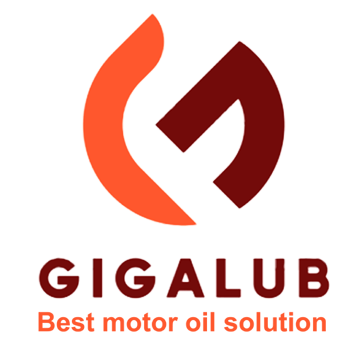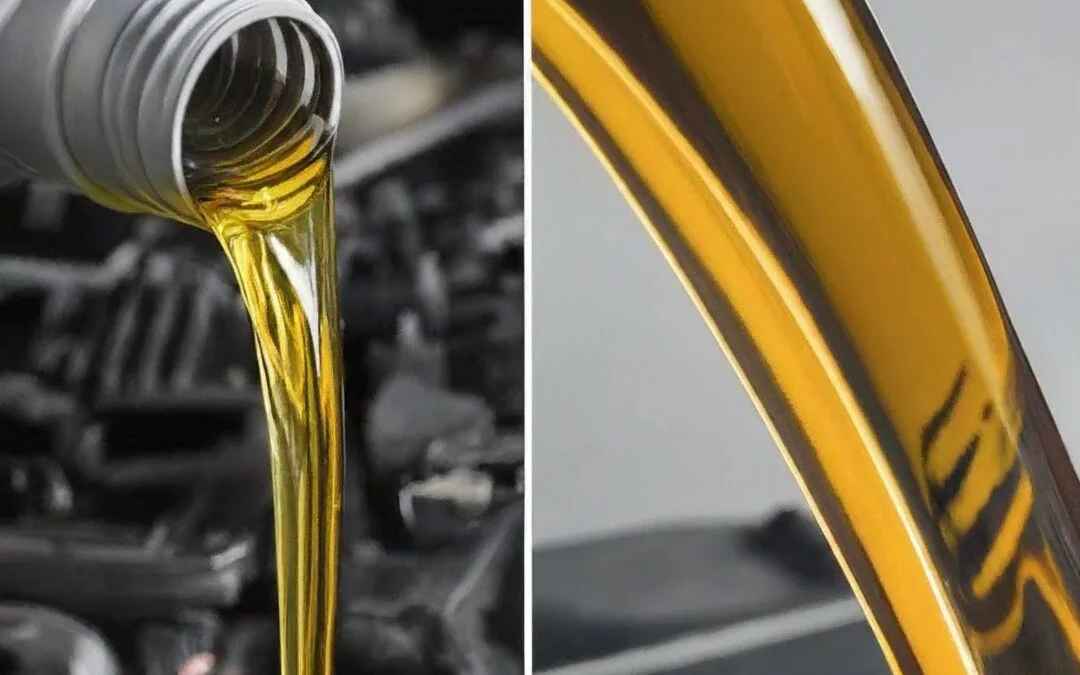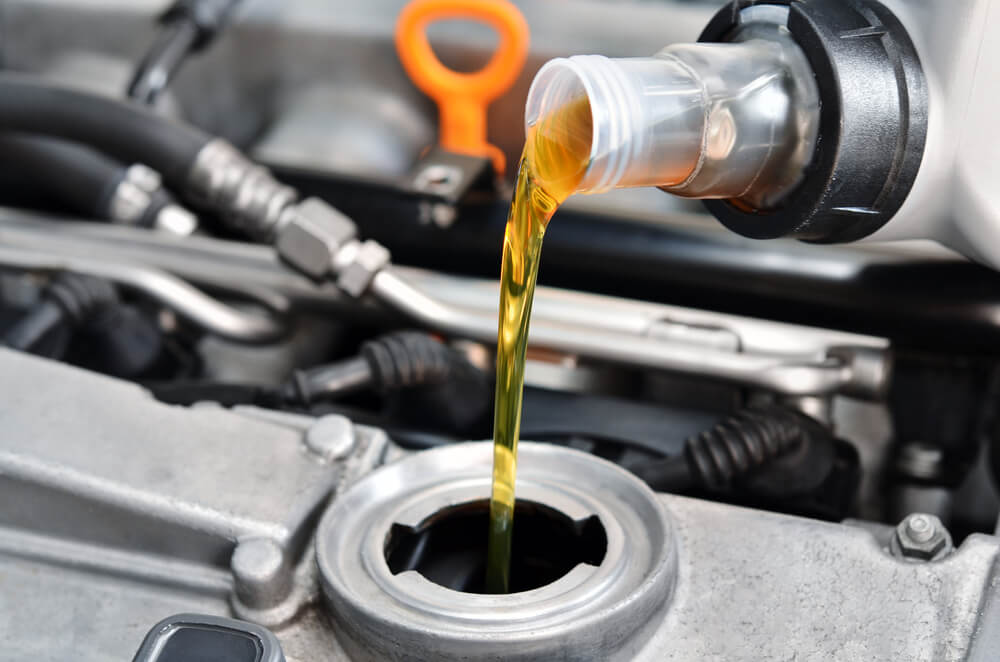Title: Unraveling the Mystery: Which Motor Oil Reigns with the Most Detergent?
Introduction
In the realm of automotive maintenance, selecting the right motor oil can be a daunting task, with numerous factors to consider. Among these, the detergent content of motor oil stands out as a critical determinant of engine cleanliness and performance. But which motor oil truly reigns supreme with the highest detergent content? In this exploration, we embark on a quest to uncover the answer to this pressing question. Delving into the intricacies of motor oil formulations and industry standards, we aim to shed light on the contenders vying for the title of the most detergent-rich motor oil. From renowned brands to cutting-edge formulations, join us as we navigate the landscape of motor oils in search of the ultimate champion in detergent content
Understanding Detergent Additives
Understanding detergent additives is crucial for maintaining the health and longevity of your vehicle’s engine. These additives are like the unsung heroes of motor oil, tirelessly working behind the scenes to keep your engine clean and functioning optimally. So, let’s dive into what detergent additives are and why they’re so important:
Detergent additives are specialized compounds blended into motor oil formulations to prevent the buildup of harmful deposits and sludge within the engine. They work by actively cleansing engine surfaces, ensuring that contaminants are kept at bay and don’t interfere with the engine’s performance.
But how exactly do detergent additives accomplish this feat? It all comes down to their unique chemical composition. These additives contain polar molecules that possess an affinity for both oil and water. This dual nature allows them to effectively latch onto dirt, soot, and other debris suspended in the motor oil, preventing them from adhering to engine surfaces.
Moreover, detergent additives boast exceptional dispersant properties, meaning they’re adept at spreading contaminants evenly throughout the oil. This prevents them from clumping together and forming stubborn deposits, ensuring that harmful substances remain suspended in the oil where they can be safely removed during oil changes.
The benefits of detergent additives extend far beyond just cleanliness. By keeping the engine free of deposits, they promote smoother operation and reduce friction, ultimately improving fuel efficiency and enhancing performance. Additionally, a cleaner engine is less prone to wear and tear, leading to increased longevity and reduced maintenance costs over time and so it is important know what motor oil has the most detergent.
However, it’s important to note that not all detergent additives are created equal. Different formulations exist, each tailored to address specific challenges and performance requirements. Some additives excel at combating high-temperature deposits, while others specialize in preventing low-temperature sludge formation. Understanding your engine’s needs and selecting the appropriate motor oil with the right detergent additives is key to ensuring optimal performance and longevity.
In conclusion, detergent additives may seem like small components, but their impact on your engine’s health is monumental. By harnessing the cleansing power of these specialized compounds, you can safeguard your engine against the perils of deposits and sludge, unlocking peak performance and reliability mile after mile.
Discussion of the various factors that influence detergent levels in motor oil
In the intricate ecosystem of automotive maintenance, the equilibrium of detergent levels in motor oil plays a pivotal role in engine performance and longevity. Understanding the multifaceted factors influencing these levels is essential for optimizing engine health and efficiency.
- Engine Design and Operation: The design and operational characteristics of an engine directly impact the accumulation of contaminants in motor oil. Factors such as combustion efficiency, piston ring sealing, and the effectiveness of crankcase ventilation systems affect the rate at which pollutants, including sludge and deposits, are generated.
- Fuel Quality: The quality of fuel used in an engine significantly influences detergent requirements. Lower-quality fuels may contain higher levels of impurities and additives, necessitating stronger detergent formulations in motor oil to mitigate deposits and maintain engine cleanliness.
- Driving Conditions: Detergent levels in motor oil are influenced by driving conditions, including temperature extremes, stop-and-go traffic, and extended idling. Each scenario poses unique challenges to engine cleanliness, with varying rates of contaminant buildup that directly impact detergent requirements.
- Oil Additive Packages: Modern motor oils are fortified with a diverse array of additives, including detergents and dispersants, tailored to address specific performance needs. The composition and effectiveness of these additive packages dictate the ability of motor oil to combat deposits and maintain engine cleanliness over extended drain intervals.
- Maintenance Practices: Diligent adherence to recommended maintenance intervals, including oil changes and filter replacements, is crucial for preserving detergent levels in motor oil. Neglecting routine maintenance can lead to accelerated degradation of detergent additives and increased levels of contaminants, compromising engine performance and durability.
- Environmental Factors: Environmental conditions, such as humidity, airborne particulate matter, and exposure to corrosive substances, can impact detergent efficacy and contribute to the formation of deposits in the engine. Regular inspection and maintenance are essential for mitigating the effects of environmental factors on motor oil cleanliness.
- Oil Quality Standards: Adherence to stringent oil quality standards, such as those set by industry organizations and regulatory agencies, ensures the availability of high-performance motor oils with optimal detergent levels. Compliance with established standards promotes engine cleanliness and longevity, safeguarding against premature wear and component failure.
In conclusion, the intricate interplay of engine design, fuel quality, driving conditions, additive formulations, maintenance practices, environmental factors, and oil quality standards collectively determine detergent levels in motor oil. By comprehensively addressing these factors, automotive enthusiasts and professionals alike can optimize engine performance, extend service life, and ensure the reliability of their vehicles in the face of diverse operating conditions.
Considerations such as engine type, operating conditions, and manufacturer specifications
In the realm of automotive maintenance and performance optimization, several crucial considerations stand out as indispensable pillars for engine health and efficiency. Among these, engine type, operating conditions, and manufacturer specifications hold significant sway, guiding decisions that impact the longevity and reliability of the power plant.
- Engine Type: The heart of any vehicle, the engine, comes in various configurations, each with its unique characteristics and requirements. Whether it’s a gasoline-powered internal combustion engine, a diesel powerhouse, a hybrid marvel, or an electric motor, understanding the nuances of engine type is paramount. Different fuels, combustion processes, and operating principles necessitate tailored maintenance approaches and fueling strategies. Drivers must acquaint themselves with the specifics of their engine type to optimize performance and ensure longevity.
- Operating Conditions: The environment in which an engine operates plays a crucial role in its health and efficiency. Factors such as temperature extremes, humidity levels, altitude variations, and driving terrain exert significant influence. Engines subjected to frequent stop-and-go city driving may endure more stress than those cruising on highways. Likewise, harsh climates or dusty environments demand heightened maintenance vigilance to prevent premature wear and tear. By considering these operating conditions, drivers can adapt their maintenance routines and driving habits to mitigate risks and optimize engine performance.
- Manufacturer Specifications: Manufacturers provide detailed guidelines and specifications tailored to each vehicle model, outlining everything from recommended fluids and fuel octane ratings to service intervals and part replacements. Adhering strictly to these specifications is imperative for preserving engine health, maximizing efficiency, and safeguarding warranty coverage. Deviations, such as using incorrect oil viscosity or neglecting scheduled maintenance, can compromise performance, increase emissions, and potentially damage engine components. Consulting the owner’s manual and following manufacturer recommendations diligently is a cornerstone of responsible vehicle ownership.
In conclusion, considering factors such as engine type, operating conditions, and manufacturer specifications is essential for enhancing engine efficiency and longevity. By understanding the unique requirements of their vehicle’s power plant and adhering to recommended practices, drivers can optimize performance, minimize downtime, and prolong the life of their engines. Whether it’s choosing the right fuel, adjusting driving habits, or following maintenance schedules religiously, every decision contributes to a smoother, more efficient, and more enjoyable driving experience.
How these factors impact the selection of motor oil with the highest detergent content
When it comes to selecting motor oil with the highest detergent content, understanding the interplay of various factors is essential. Each element, from engine type to operating conditions, significantly influences the decision-making process to ensure optimal engine cleanliness and performance.
- Engine Type: The first consideration in selecting motor oil is the type of engine it will be used in. Different engine designs have distinct characteristics and requirements regarding detergent content. For instance, high-performance gasoline engines often require motor oil with potent detergents to combat deposits caused by elevated combustion temperatures. Conversely, diesel engines may demand formulations capable of managing soot and sludge buildup effectively. Tailoring the detergent content to match the specific needs of the engine type ensures efficient cleaning and protection of vital components.
- Operating Conditions: Operating conditions exert a profound impact on deposit formation and the efficacy of detergent additives. Engines subjected to extreme temperatures, heavy loads, or frequent stop-and-go driving are more susceptible to deposit buildup. In such scenarios, motor oil with robust detergent properties becomes indispensable. Understanding the prevailing operating conditions allows for the selection of oil with the appropriate detergent content to maintain cleanliness and preserve engine performance under challenging circumstances.
- Manufacturer Specifications: Manufacturers provide detailed recommendations regarding motor oil selection, including desired detergent content levels. Adhering to these specifications is crucial for ensuring compatibility with the engine’s design and materials, as well as preserving warranty coverage. By consulting manufacturer guidelines, drivers can identify motor oils that meet or exceed detergent content requirements, thus optimizing engine cleanliness and longevity while minimizing the risk of compatibility issues or warranty disputes.
- Oil Additive Packages: The composition of motor oil’s additive package plays a pivotal role in determining its detergent content and effectiveness. Premium motor oils often boast advanced detergent and dispersant additives engineered to combat deposits and enhance engine cleanliness. Evaluating the additive package of different motor oil formulations enables informed decisions regarding detergent content and overall performance benefits.
- Maintenance Practices: Regular oil changes are essential for replenishing detergent additives and maintaining optimal cleanliness in the engine. Over time, detergent levels diminish as they neutralize contaminants and prevent deposit formation. Adhering to recommended oil change intervals ensures the continuous supply of detergents, thereby safeguarding engine performance and longevity over the long term.
In summary, selecting motor oil with the highest detergent content involves careful consideration of engine type, operating conditions, manufacturer specifications, oil additive packages, and maintenance practices. By weighing these factors thoughtfully, drivers can make informed choices that promote engine cleanliness, efficiency, and durability. Choosing the right motor oil with an appropriate detergent content is fundamental to preserving engine health and ensuring a smooth and trouble-free driving experience.
Industry standard and certification:
In the vast and ever-evolving landscape of lubricants, industry standards and certifications serve as guiding beacons, ensuring quality, performance, and reliability. Understanding these benchmarks is essential for consumers and businesses alike, as they navigate the myriad options available in the market. Below, we explore the significance of industry standards and certifications in lubricants:
- API (American Petroleum Institute) Certification: The API certification is one of the most recognized and respected standards in the lubricants industry. It signifies that a lubricant meets the rigorous performance and quality requirements set forth by the American Petroleum Institute. The API certification encompasses various performance categories, such as gasoline and diesel engine oils, gear oils, and transmission fluids, each denoted by a distinct service symbol (e.g., API SN for gasoline engines). Compliance with API standards assures consumers of the lubricant’s ability to deliver optimal performance and protection for their specific application.
- ACEA (European Automobile Manufacturers’ Association) Specification: The ACEA specification is a set of standards developed by European automobile manufacturers to ensure the compatibility and performance of lubricants in modern vehicles. ACEA specifications encompass different categories based on engine type, fuel efficiency, and emission control systems. Lubricants meeting ACEA standards undergo rigorous testing to validate their suitability for use in European vehicles, providing consumers with confidence in their performance and compatibility with their vehicles’ requirements.
- ILSAC (International Lubricant Standardization and Approval Committee) Certification: ILSAC specifications, primarily applicable to passenger car engine oils, are jointly developed by North American and Japanese automobile manufacturers. These specifications aim to ensure consistent performance and compatibility with modern engine technologies, including turbocharged engines and advanced emission control systems. ILSAC-certified lubricants undergo extensive testing to meet stringent requirements for engine cleanliness, wear protection, and fuel efficiency, offering consumers peace of mind regarding their lubricant choice.
- OEM (Original Equipment Manufacturer) Approvals: OEM approvals denote lubricants that have been specifically approved or recommended by vehicle manufacturers for use in their vehicles. These approvals typically involve stringent testing and validation processes to ensure compatibility with the engine and its components. Lubricants carrying OEM approvals offer assurance to consumers that they meet the manufacturer’s strict performance and quality standards, making them ideal choices for maintaining warranty coverage and preserving engine longevity.
- ISO (International Organization for Standardization) Certification: ISO standards provide a framework for quality management systems, including those applicable to lubricant manufacturing and testing processes. ISO-certified lubricant manufacturers adhere to internationally recognized quality management practices, ensuring consistency, traceability, and accountability throughout the production and distribution chain. ISO certification reinforces consumer trust in the reliability and quality of lubricants, promoting transparency and accountability within the industry.
In summary, industry standards and certifications play a pivotal role in ensuring the quality, performance, and reliability of lubricants. From API and ACEA specifications to ILSAC certifications, OEM approvals, and ISO standards, each benchmark provides consumers and businesses with valuable assurances regarding the suitability and effectiveness of lubricants for their intended applications. By understanding and prioritizing compliance with industry standards and certifications, stakeholders can make informed decisions that optimize performance, protect valuable assets, and uphold the integrity of their operations in the lubricants industry.
Popular Motor Oil Brands Known for High Detergent Levels
In the dynamic landscape of motor oil, certain brands have earned distinguished reputations for their commitment to engine cleanliness and performance. Renowned for their potent detergent formulations, these brands stand out as pioneers in the quest for superior lubrication and protection. Below, we delve into some of the most popular motor oil brands celebrated for their high detergent levels:
- Mobil 1: Widely regarded as a benchmark for excellence in automotive lubrication, Mobil 1 has consistently delivered premium motor oils engineered to exceed industry standards. With a focus on advanced synthetic formulations, Mobil 1 oils boast powerful detergent additives designed to combat deposits and maintain engine cleanliness even under the most demanding conditions. Trusted by professional racers and everyday drivers alike, Mobil 1 stands as a symbol of uncompromising quality and performance.
- Castrol EDGE: A stalwart in the realm of motor oils, Castrol EDGE has earned a loyal following for its innovative formulations and relentless pursuit of technological advancements. Leveraging cutting-edge engineering and rigorous testing, Castrol EDGE oils feature high-performance detergents that effectively cleanse engine internals, preventing harmful deposits and ensuring optimal performance. Whether tackling the rigors of everyday commuting or pushing the limits on the track, Castrol EDGE delivers unmatched protection and reliability.
- Pennzoil Platinum: Backed by decades of expertise and a legacy of excellence, Pennzoil Platinum represents the pinnacle of motor oil innovation. Formulated with PurePlus Technology, Pennzoil Platinum oils harness the power of synthetic base oils to deliver superior cleansing properties and lasting engine protection. Enhanced with high-quality detergents, Pennzoil Platinum oils effectively remove deposits and maintain engine cleanliness, enabling peak performance and longevity. Trusted by automotive enthusiasts and professionals worldwide, Pennzoil Platinum continues to set the standard for premium lubrication solutions.
- Valvoline SynPower: Recognized for its unwavering commitment to performance and reliability, Valvoline SynPower stands as a testament to excellence in motor oil engineering. Crafted with advanced synthetic blends and fortified with potent detergent additives, Valvoline SynPower oils provide unparalleled protection against deposit buildup and engine wear. Whether powering high-performance sports cars or everyday commuter vehicles, Valvoline SynPower ensures optimal engine cleanliness and performance, earning the trust of drivers across the globe.
- Shell Rotella: Catering specifically to the needs of diesel engines, Shell Rotella has established itself as a premier choice for heavy-duty lubrication solutions. Designed to meet the demands of modern diesel engines, Shell Rotella oils feature robust detergent formulations that effectively combat soot and carbon deposits, ensuring clean and efficient engine operation. With a legacy of reliability and performance in the commercial and industrial sectors, Shell Rotella remains a trusted ally for diesel engine owners seeking uncompromising quality and protection.
In conclusion, these motor oil brands have earned widespread acclaim for their high detergent formulations and unwavering dedication to engine cleanliness and performance. Whether it’s Mobil 1’s cutting-edge synthetics, Castrol EDGE’s relentless pursuit of excellence, Pennzoil Platinum’s PurePlus Technology, Valvoline SynPower’s advanced blends, or Shell Rotella’s diesel-specific solutions, each brand exemplifies the pinnacle of lubrication innovation. By choosing motor oils from these esteemed brands, drivers can enjoy peace of mind knowing their engines are protected by the finest detergents available, ensuring optimal performance and longevity mile after mile.
Benefits of Motor Oils with High Detergent Levels
Motor oils fortified with high detergent levels stand as formidable guardians of engine health and performance, offering a myriad of benefits that elevate driving experiences and safeguard automotive investments. Below, we uncover the transformative advantages conferred by these advanced lubricants:
- Exceptional Engine Cleanliness: High detergent levels in motor oils excel at combating deposits, sludge, and varnish that accumulate within the engine over time. By effectively dissolving and dispersing contaminants, these potent detergents ensure vital engine components remain pristine, promoting optimal combustion, and preserving power output.
- Reduced Wear and Tear: Cleaner engine internals translate to reduced friction and wear, prolonging the lifespan of critical components such as piston rings, camshafts, and bearings. High detergent motor oils form a protective barrier that shields against metal-to-metal contact, minimizing abrasive damage and extending engine longevity.
- Enhanced Fuel Efficiency: A clean engine operates more efficiently, with improved fuel combustion and reduced energy losses attributed to friction and deposits. Motor oils with high detergent levels optimize engine performance, allowing for smoother operation and increased fuel economy, ultimately translating into savings at the pump.
- Maintained Power and Performance: Over time, deposits can impede airflow, obstructing intake valves and diminishing engine power. By keeping critical engine components clean, motor oils with high detergent levels ensure consistent power delivery and performance, enabling drivers to enjoy responsive acceleration and smooth operation.
- Extended Maintenance Intervals: The superior cleansing properties of high detergent motor oils help delay the onset of performance degradation and the need for costly engine repairs. By mitigating deposit buildup, these advanced lubricants enable extended oil change intervals while maintaining optimal engine health and reliability.
- Environmental Benefits: Cleaner-burning engines produce fewer harmful emissions, contributing to improved air quality and reduced environmental impact. Motor oils with high detergent levels facilitate cleaner combustion by preventing the formation of carbon deposits and reducing exhaust emissions, aligning with sustainability goals and regulatory requirements.
- Optimized Engine Protection: In addition to cleaning, high detergent motor oils offer enhanced protection against corrosion and oxidation, safeguarding engine components from damage caused by moisture, acids, and heat. By preserving engine integrity, these advanced lubricants provide peace of mind and reliability in diverse operating conditions.
In summary, motor oils enriched with high detergent levels offer a holistic approach to engine care, delivering unparalleled cleanliness, protection, and performance benefits. From maintaining engine power and efficiency to extending maintenance intervals and reducing environmental impact, the advantages of these advanced lubricants resonate across the automotive spectrum, ensuring optimized driving experiences and safeguarding the longevity of valuable assets. Embracing the transformative power of high detergent motor oils represents a proactive investment in engine health and performance, empowering drivers to unleash the full potential of their vehicles with confidence and peace of mind.
Benefits of Motor Oils with High Detergent Levels
Motor oils fortified with high detergent levels stand as formidable guardians of engine health and performance, offering a myriad of benefits that elevate driving experiences and safeguard automotive investments. Below, we uncover the transformative advantages conferred by these advanced lubricants:
- Exceptional Engine Cleanliness: High detergent levels in motor oils excel at combating deposits, sludge, and varnish that accumulate within the engine over time. By effectively dissolving and dispersing contaminants, these potent detergents ensure vital engine components remain pristine, promoting optimal combustion, and preserving power output.
- Reduced Wear and Tear: Cleaner engine internals translate to reduced friction and wear, prolonging the lifespan of critical components such as piston rings, camshafts, and bearings. High detergent motor oils form a protective barrier that shields against metal-to-metal contact, minimizing abrasive damage and extending engine longevity.
- Enhanced Fuel Efficiency: A clean engine operates more efficiently, with improved fuel combustion and reduced energy losses attributed to friction and deposits. Motor oils with high detergent levels optimize engine performance, allowing for smoother operation and increased fuel economy, ultimately translating into savings at the pump.
- Maintained Power and Performance: Over time, deposits can impede airflow, obstructing intake valves and diminishing engine power. By keeping critical engine components clean, motor oils with high detergent levels ensure consistent power delivery and performance, enabling drivers to enjoy responsive acceleration and smooth operation.
- Extended Maintenance Intervals: The superior cleansing properties of high detergent motor oils help delay the onset of performance degradation and the need for costly engine repairs. By mitigating deposit buildup, these advanced lubricants enable extended oil change intervals while maintaining optimal engine health and reliability.
- Environmental Benefits: Cleaner-burning engines produce fewer harmful emissions, contributing to improved air quality and reduced environmental impact. Motor oils with high detergent levels facilitate cleaner combustion by preventing the formation of carbon deposits and reducing exhaust emissions, aligning with sustainability goals and regulatory requirements.
- Optimized Engine Protection: In addition to cleaning, high detergent motor oils offer enhanced protection against corrosion and oxidation, safeguarding engine components from damage caused by moisture, acids, and heat. By preserving engine integrity, these advanced lubricants provide peace of mind and reliability in diverse operating conditions.
In summary, motor oils enriched with high detergent levels offer a holistic approach to engine care, delivering unparalleled cleanliness, protection, and performance benefits. From maintaining engine power and efficiency to extending maintenance intervals and reducing environmental impact, the advantages of these advanced lubricants resonate across the automotive spectrum, ensuring optimized driving experiences and safeguarding the longevity of valuable assets. Embracing the transformative power of high detergent motor oils represents a proactive investment in engine health and performance, empowering drivers to unleash the full potential of their vehicles with confidence and peace of mind.
Practical tips for selecting motor oil with the most detergent for your specific vehicle and driving conditions
Selecting motor oil with high detergent levels tailored to your specific vehicle and driving conditions is essential for optimal engine cleanliness and performance. To ensure you make the right choice, consider the following practical tips:
- Consult Your Owner’s Manual: Start by consulting your vehicle’s owner’s manual to determine the recommended oil viscosity, specifications, and performance requirements. Pay attention to any specific detergent recommendations provided by the manufacturer, as they are tailored to your vehicle’s engine design and needs.
- Understand Your Driving Conditions: Assess your typical driving conditions, including temperature extremes, stop-and-go traffic, towing, or extended highway driving. These factors influence the rate of deposit formation and the effectiveness of detergent additives required to maintain engine cleanliness. Choose motor oil with high detergent levels suitable for your specific driving conditions.
- Consider Synthetic Formulations: Synthetic motor oils often contain higher levels of detergents and offer superior cleaning properties compared to conventional oils. Consider using synthetic formulations, especially if you drive in demanding conditions or have a high-performance vehicle. Synthetic oils provide enhanced protection against deposits, ensuring optimal engine cleanliness and longevity.
- Look for API or OEM Recommendations: Check for motor oils that meet or exceed API (American Petroleum Institute) specifications or have OEM (Original Equipment Manufacturer) approvals for your vehicle. These certifications ensure that the oil has undergone rigorous testing and meets quality and performance standards, including detergent levels suitable for your engine.
- Choose the Right Viscosity: Select motor oil viscosity based on your climate and driving conditions. Lower viscosity oils (with a lower first number) offer better cold-start protection, while higher viscosity oils provide improved engine protection in hotter conditions. Matching the viscosity to your driving environment ensures optimal engine performance and protection against deposits.
- Evaluate Brand Reputation and Reviews: Choose motor oils from reputable brands with a track record of quality, reliability, and customer satisfaction. Reading reviews and testimonials from other vehicle owners can provide valuable insights into the effectiveness of different motor oil brands and formulations in maintaining engine cleanliness.
- Monitor Oil Change Intervals: Regularly monitor your vehicle’s oil change intervals and adhere to recommended maintenance schedules. Changing the oil at the specified intervals ensures the replenishment of detergent additives and maintains optimal engine cleanliness over time. Neglecting oil changes can lead to accelerated deposit buildup and compromise engine performance.
- Consider Specialty Formulations: If you have a high-performance vehicle, turbocharged engine, or advanced emission control system, consider using specialty motor oil formulations designed to meet the unique demands of these engines. Specialty oils often contain advanced detergents and additives tailored to provide superior cleaning and protection under extreme conditions.
By following these practical tips and considering your vehicle’s specific requirements and driving conditions, you can confidently select motor oil with the most detergent for optimal engine cleanliness and performance. Investing in high-quality motor oil ensures that your engine remains clean, efficient, and reliable for miles to come.
Useful link
https://overlakeoil.com/detergent-vs-non-detergent-choose-the-right-motor-oil-for-you/
Conclusion:
In conclusion, selecting motor oil with the most detergent is a crucial step towards ensuring the cleanliness, performance, and longevity of your vehicle’s engine. By considering factors such as your vehicle’s specifications, driving conditions, and manufacturer recommendations, you can make an informed decision to choose the motor oil formulation that best suits your needs. Whether opting for synthetic formulations, consulting API or OEM recommendations, or prioritizing reputable brands, investing in motor oil with high detergent levels is paramount for maintaining optimal engine health. With diligent attention to detail and adherence to recommended maintenance practices, you can confidently safeguard your engine against harmful deposits and enjoy smooth, reliable performance mile after mile.
FAQ: Choosing Motor Oil with High Detergent Content
. What is detergent in motor oil? Detergent additives in motor oil are chemical compounds designed to clean and prevent the buildup of deposits and sludge inside the engine. They help keep the engine components clean and functioning optimally.
2. Why is detergent content important in motor oil? High detergent content in motor oil ensures better cleaning and protection against deposits and sludge formation in the engine. This helps maintain engine performance, fuel efficiency, and overall longevity.
3. What are the benefits of using motor oil with high detergent levels?
- Improved Engine Performance: By preventing deposits and sludge buildup, high-detergent motor oils can help maintain optimal engine performance.
- Extended Engine Life: Cleaner engine components are less prone to wear and damage, potentially prolonging the life of your engine.
- Better Fuel Efficiency: Clean engines operate more efficiently, potentially leading to better fuel economy.
4. How do I know if a motor oil has a high detergent level? Motor oil labels often specify the level of detergent additives present. Look for terms like “high detergent,” “advanced cleaning formula,” or similar indications on the packaging. Additionally, you can consult the oil’s specifications provided by the manufacturer.
5. Are there different types of detergent additives in motor oil? Yes, there are various detergent additives used in motor oils, each formulated to target specific types of contaminants and engine designs. Some common types include calcium, magnesium, and ashless detergents.
6. Can using motor oil with high detergent content cause any issues? While high detergent content is generally beneficial, excessive use or use in engines not designed for such oils can potentially lead to accelerated oil breakdown or increased engine wear. It’s crucial to use motor oil recommended by the manufacturer for your specific engine.
7. Is there a specific motor oil brand known for having the highest detergent content? Different motor oil brands offer products with varying detergent levels. Brands renowned for their high-quality additives and detergents include Mobil 1, Pennzoil, Castrol, and Valvoline, among others. However, the exact detergent content may vary between product lines and viscosity grades.
8. Can I mix motor oils with different detergent levels? While mixing motor oils of the same viscosity grade and type (conventional, synthetic, or blend) is generally safe, it’s not recommended to mix oils with significantly different detergent levels. Doing so could compromise the cleaning effectiveness and potentially lead to engine issues.
9. How often should I use motor oil with high detergent content? The frequency of oil changes depends on factors such as driving habits, environmental conditions, and the manufacturer’s recommendations. However, using motor oil with high detergent content during regular oil changes can help maintain engine cleanliness and performance over time.
10. Are there any special considerations when switching to motor oil with high detergent content? If you’re transitioning from a lower-detergent oil to one with higher detergent content, it’s generally safe to do so. However, closely monitor your engine for any unusual changes in performance or oil consumption, as some engines may react differently to the new oil formulation. If you have concerns, consult your vehicle’s manufacturer or a trusted mechanic for guidance.





Leave a Reply